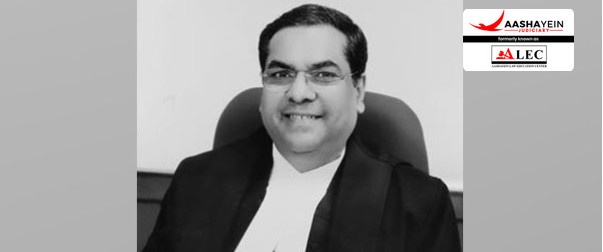Chief Justice of India (CJI) Sanjiv Khanna highlighted key challenges currently confronting the Supreme Court of India. Addressing these issues during the Ceremonial Bench marking the closure of the Supreme Court's Diamond Jubilee Year, the CJI identified case pendency, high litigation costs, and unethical practices among legal professionals as pressing concerns. His speech provided a deep reflection on the evolution of the Supreme Court, alongside an urgent call to action on these core challenges.
Case Pendency: A Barrier to Timely Justice
The CJI pointed out the growing issue of case pendency as one of the most significant hurdles the Supreme Court faces today. With an increasing backlog of cases, justice has been delayed, resulting in an erosion of public confidence in the judicial system. The backlog of cases undermines the Court’s ability to offer timely resolutions, which is a cornerstone of the right to justice under Article 21 of the Indian Constitution.
- Article 21 of the Indian Constitution guarantees the fundamental right to life and personal liberty, which includes the right to speedy trial and timely justice.
High Litigation Costs: A Threat to Accessibility
The rising cost of litigation is another critical issue raised by CJI Khanna. With legal fees escalating, access to justice has become increasingly difficult for the common man. The cost of pursuing a case in the Supreme Court often excludes marginalized sections of society, thereby hindering the right to access justice, a key element of the Indian legal system.
- Article 39A of the Constitution mandates that the State shall provide free legal aid to ensure that opportunities for securing justice are not denied to any citizen by reason of economic or other disabilities.
You can also read the latest judgment by visiting [Latest Judgment].
For more information, visit [Aashayein Enquiry Section]
Evolution of the Supreme Court: A Journey through Decades
In his speech, the CJI also reflected on the historical development of the Supreme Court, emphasizing its role in shaping India's constitutional democracy. From the early years after independence to the present day, the Supreme Court has adapted to the evolving challenges of the nation while upholding the values of justice, equality, and democracy.
The Early Decades: Building Constitutional Morality
The first decade after independence, known as the "Sunrise Years," focused on transforming the newly independent nation to reflect the ethos and morality of the Constitution. Landmark decisions like Romesh Thapar v. State of Madras (1950) and Daryao v. State of Uttar Pradesh (1961) laid the foundation for fundamental rights.
The Rise of Public Interest Litigation
In the 1970s-1980s, the Court introduced the concept of Public Interest Litigation (PIL), expanding access to justice for marginalized communities. Cases such as Hussainara Khatoon v. State of Bihar (1979) and Bandhua Mukti Morcha v. Union of India (1984) reflect this shift toward social justice.
Consolidation of Fundamental Rights in the 1990s
The 1990s witnessed the Supreme Court adopting an expansive interpretation of fundamental rights, as seen in cases like Unni Krishnan v. State of Andhra Pradesh (1993), which recognized the right to education as part of the right to life, and Vishaka v. State of Rajasthan (1997), which set guidelines for preventing sexual harassment at the workplace.
Conclusion: The Need for Reform
CJI Khanna’s remarks underscore the importance of addressing the three challenges—case pendency, litigation costs, and the integrity of legal practice—if the Supreme Court is to continue functioning as a true people’s court. While the Court has made remarkable strides in its 75-year journey, these challenges require urgent reform to ensure that justice remains accessible, timely, and rooted in truth.
The CJI’s reflections serve as both a celebration of the Court’s achievements and a call to action for the legal community and policymakers to address these critical issues for the future of India’s justice system.

